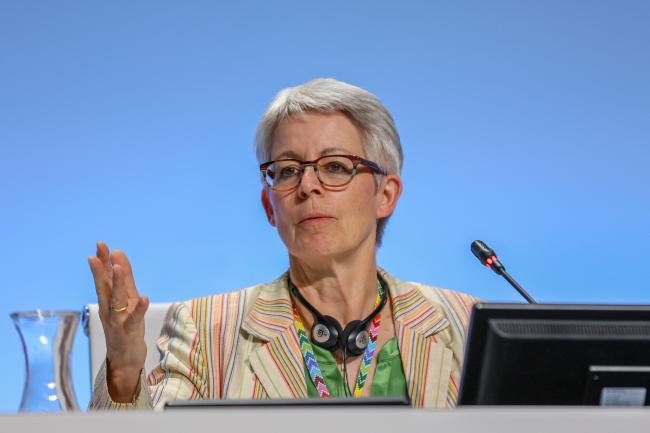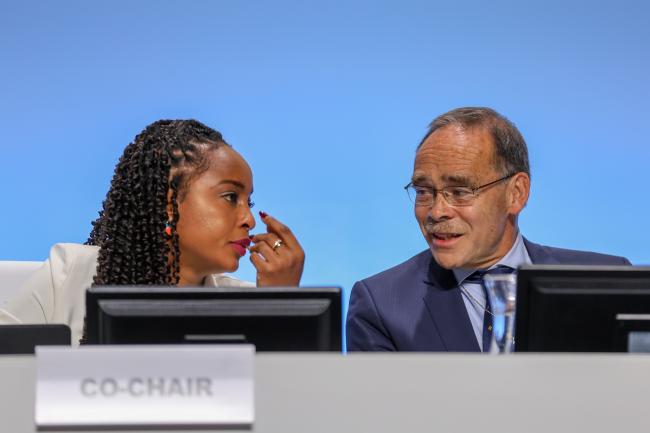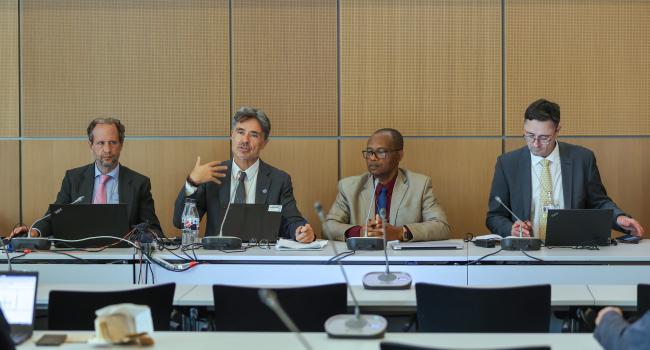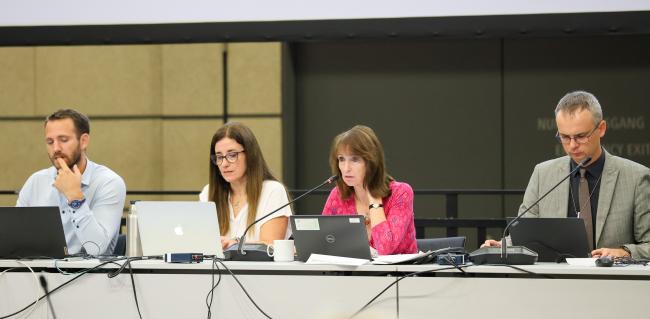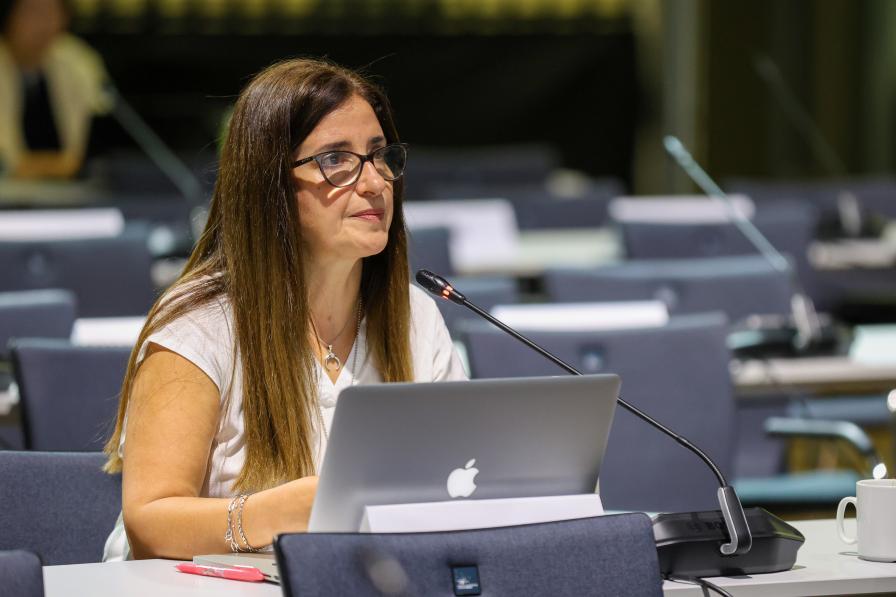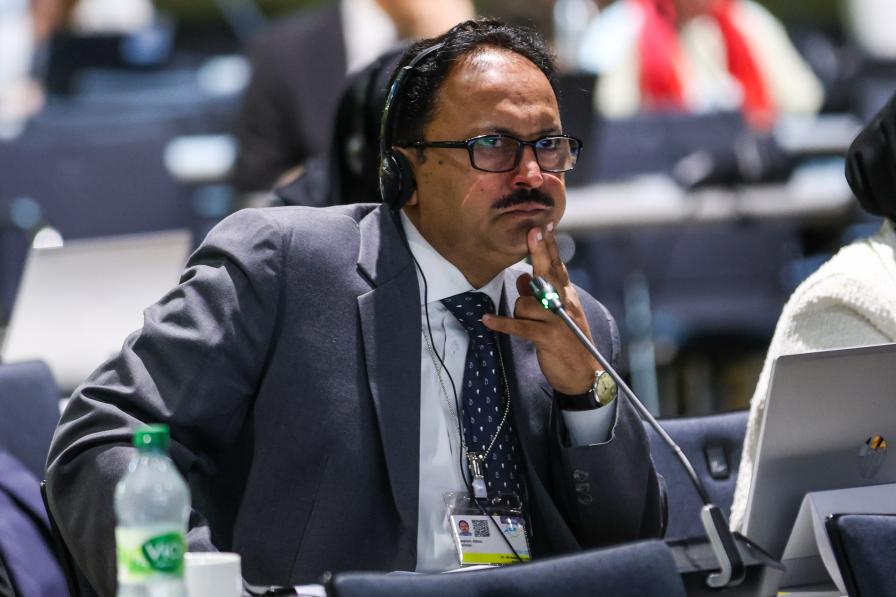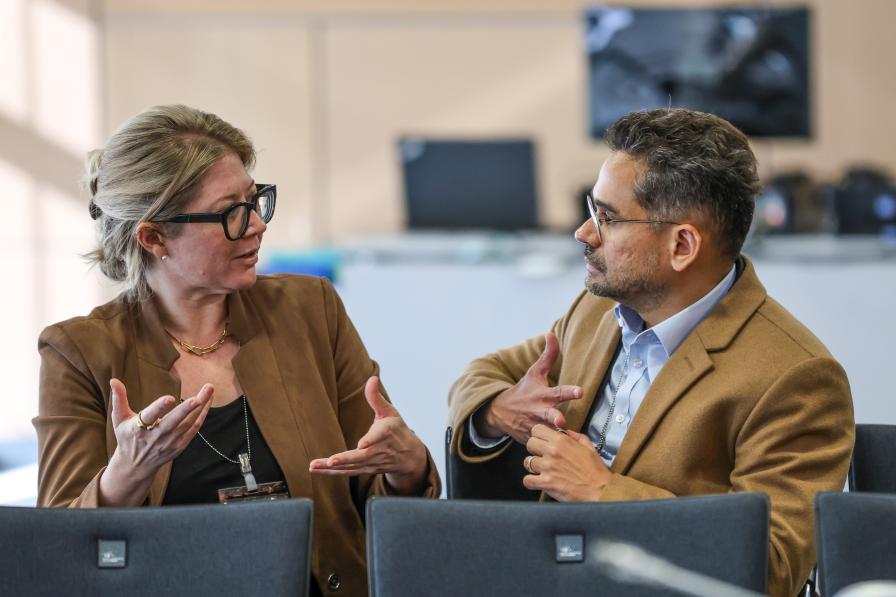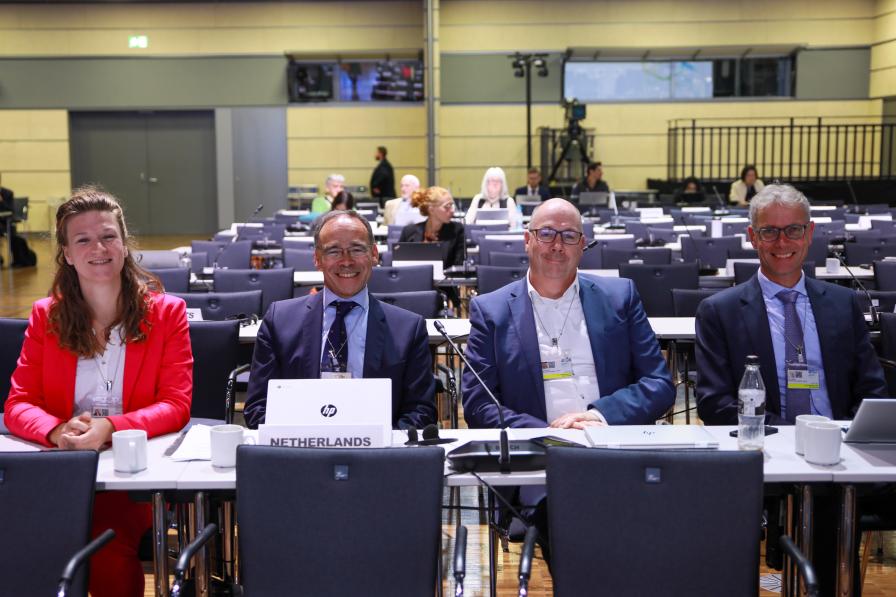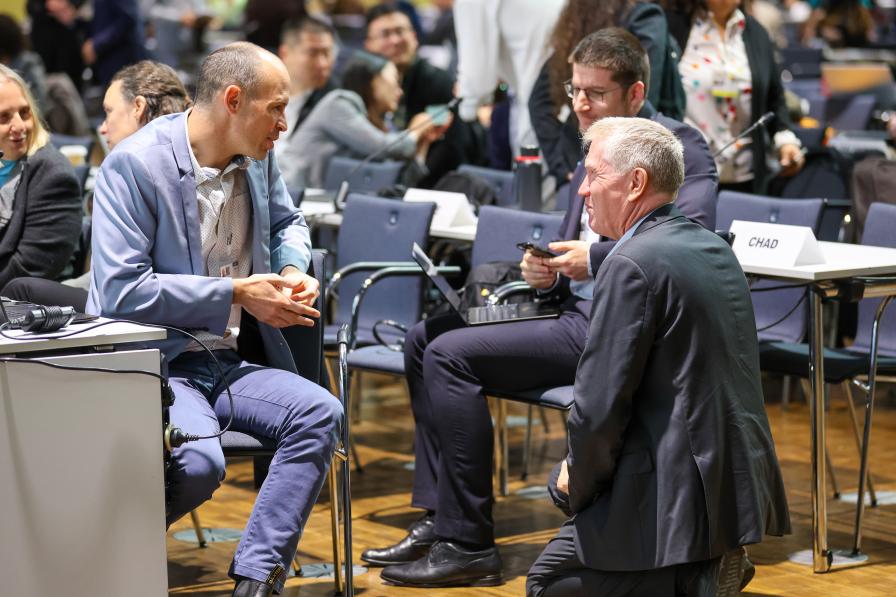On the eve of the High-level Segment (HLS), various groups and the Committee of the Whole (CoW) worked feverishly to complete negotiations on the draft framework text and finalize the resolutions expected to be adopted by the Fifth International Conference on Chemicals Management (ICCM5). They managed to largely finish work on four resolutions, agree on the framework’s vision, and revise the framework provisions on capacity building. Consensus on other matters, however, continued to elude them.
Want to dive deeper on today's talks? Read the Earth Negotiations Bulletin daily report.
The Committee of the Whole (CoW) decided ad referendum on a vision: “Our vision is a planet free of harm from chemicals and waste for a safe, healthy and sustainable future.”
They worked toward consensus on the introductory paragraphs of the framework, as well as the section on principles and approaches. They also reviewed a proposal from the Global Alliance on Health and Pollution (GAHP) to replace the framework’s section on capacity building.
The CoW discussion on the framework’s introduction highlighted differences on references to: proper management of chemicals and waste; the triple planetary crisis; and green chemistry.
The CoW’s principles and approaches debate centered on which principles should be included in the section’s chapeau, with a diverse group of countries, including the US, JAPAN, UK, EU, PAKISTAN, SWITZERLAND, CANADA, OMAN and AUSTRALIA, opposing inclusion of references to specific principles. Numerous developing countries, on the other hand, insisted the chapeau should include a mention of the principle of common but differentiated responsibilities (CBDR).
On capacity building, GAHP’s proposal was met with general acceptance from the CoW, although sticking points remained on technology transfer and language about the “establishment of a data bank.”
An Open-ended Working Group (OEWG) on financial considerations tried to break the log jam on the draft framework’s text on dedicated external finance from Tuesday evening, starting with consideration of “clean” simplified text from the co-facilitators on: the “ever increasing need” of developing countries and countries with economies in transition for strengthened financing and the role of the Global Environment Facility (GEF) and the UN Environment Programme’s (UNEP) Special Programme to Support Institutional Strengthening at the National Level for the Implementation of the Basel, Rotterdam and Stockholm Conventions, the Minamata Convention and the Strategic Approach to International Chemicals Management (SAICM).
Delegates largely welcomed the proposal, but replaced language on “ever increasing need” with text recognizing insufficient existing financing for the chemicals and waste cluster. Some reservations remain about references to developing countries and countries with economies in transition.
The OEWG also did not make progress on a highly contested call for increased financing from the private sector, although many favored compromise language calling on governments to operationalize the private sector component of the integrated approach to financing of the sound management of chemicals and waste.
The Resolutions Contact Group managed to finalize draft resolutions on the adoption of the framework and international cooperation, and largely completed work on a resolution on implementation arrangements. A resolution on the measurability framework revealed differences over what initial indicators to highlight, whether to create a specialized expert group to undertake further work, and how indicator work might tie into the indicators for the Sustainable Development Goals (SDGs).
The group agreed to work in the evening on resolutions regarding guidelines for national focal points, highly hazardous pesticides, and the proposal for an international code of conduct on chemicals and waste management.
To receive free coverage of global environmental events delivered to your inbox, subscribe to the ENB Update newsletter.
All ENB photos are free to use with attribution. For the 5th International Conference on Chemicals Management and Resumed 4th Meeting of the Intersessional Process for Considering SAICM and the Sound Management of Chemicals and Waste Beyond 2020, please use: Photo by IISD/ENB | Mike Muzurakis.

